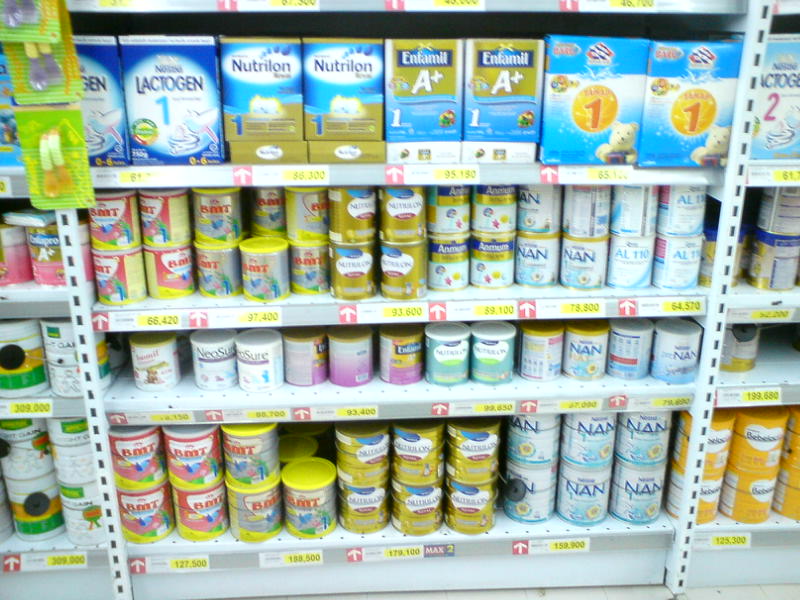Acute airway infection (ISPA) is a widely encountered disease, from the primary service level to the referral hospital, especially in children aged 1 – 5 years, the risk of contracting ISPA 1.5 – 3 times higher in children who are raised in the nursery (TPA) than at home. Intestinal microbiota begins since the fetus is in the lower uterus and forms after birth. Before becoming a complex microbiome of adult type, there are several phases of transition, namely at the time of breastfeeding, during the introduction of solid food, and at the time of removal of breast milk. Environmental exposure in the transition phase is very influential in the formation of the microbiota of children’s intestine, especially in children who are raised in TPA, where infectious diseases often occur.
Previous studies mention that three strategies to increase colonization of normal bowel microbiota, namely by increasing the amount of normal microbiota (probiotics), enhancing nutrients that will increase the growth of probiotic bacteria (prebiotic) and combine microbiota and nutrient substrates (synbiotic). However, the evidence regarding prebiotic, probiotic, and synbiotic effects of ISPA prevention unknown, thus it is better is required through clinical trials. The study aims to determine the effects of prebiotics, probiotics, and synbiotic contained in formula Milk as an ISPA prevention in children aged 1 – 5 years who are taken care of in TPA.
This research was conducted in 12 TPA spread in Surabaya, Sidoarjo, and Gresik for 26 weeks on 213 children aged 1 – 5 years. Randomization divided into four groups, namely P1 (prebiotic groups), P2 (probiotic groups), P3 (symbiotic groups), and P4 groups (standard formula/milk control. There were children with lactose intolerance; Congenital disorders that disrupt the respiratory system, cardiovascular or digestive tract; Cow’s milk protein allergies; Danor have a history of consuming probiotics, prebiotic or food/beverage containing such supplements for 2 weeks earlier, not included in this study.
There were differences in incidents and the number of days in each of the significant ISPA episodes between the 4 groups. A significant decrease in the total reduction rate (ARR) occurs in groups of P2 and P3, which is 15% and 16% when compared to the control group. The number of days in each ISPA episode is also lower in both groups. There is no meaningful difference in the P1 group, both the incident and the number of days in each ISPA episode when compared to the control group. The control group has incidents, and the number of days in each ISPA episode is most likely to be compared to other groups.
Prebiotic supplementation affects the incidence or duration of ISPA, but not in probiotics and synbiotics. The results related to the age of research samples of 11 – 59 months (average 38.57 ± 11.8 months) and the amount of normal endogenous flora has begun to decline so the prebiotic administration (nutrients for the normal endogenous flora) at that age will be highly dependent on the residual amount of normal endogenous flora. Some previous studies have also stated that prebiotic and synbiotic supplementation can decrease the severity and duration of the ISPA as well as decrease the amount of antibiotic prescribing. The data under the theory of standard mucosal immune system (CMIS), which increases immune responses in the mucous membranes of the intestine, will also increase the immune response produced in the other mucosa i.e. the airways mucosa.
As a conclusion of this study, probiotic and synbiotic supplementation on formula milk may decrease the incidence and number of days on each episode of ISPA on children aged 1 – 5 years old at TPA, the best prevention deodorizer in children who get synbiotic supplementation. Improving the immune response of the airway mucosa occurs due to increased intestinal mucosa immune response related to the standard mucosal immune system (CMIS).
Author: Prof. Dr. Subijanto Marto Sudarmo, dr., Sp.A(K)
Details of this research available at:
http://chimie-biologie.ubm.ro/carpathian_journal/Papers_11(5)/CJFST11(5)2019_6.pdf
Sudarmo SM, Yamin A, Athiyyah AF, Darma A, dan Ranuh RG. Carpathian Journal of Food Science and Technology, Special issue, 2019 11 (5), 43-49. Published 2019 Sept 20. doi:10.34302/crpjfst/2019.11.5.6





